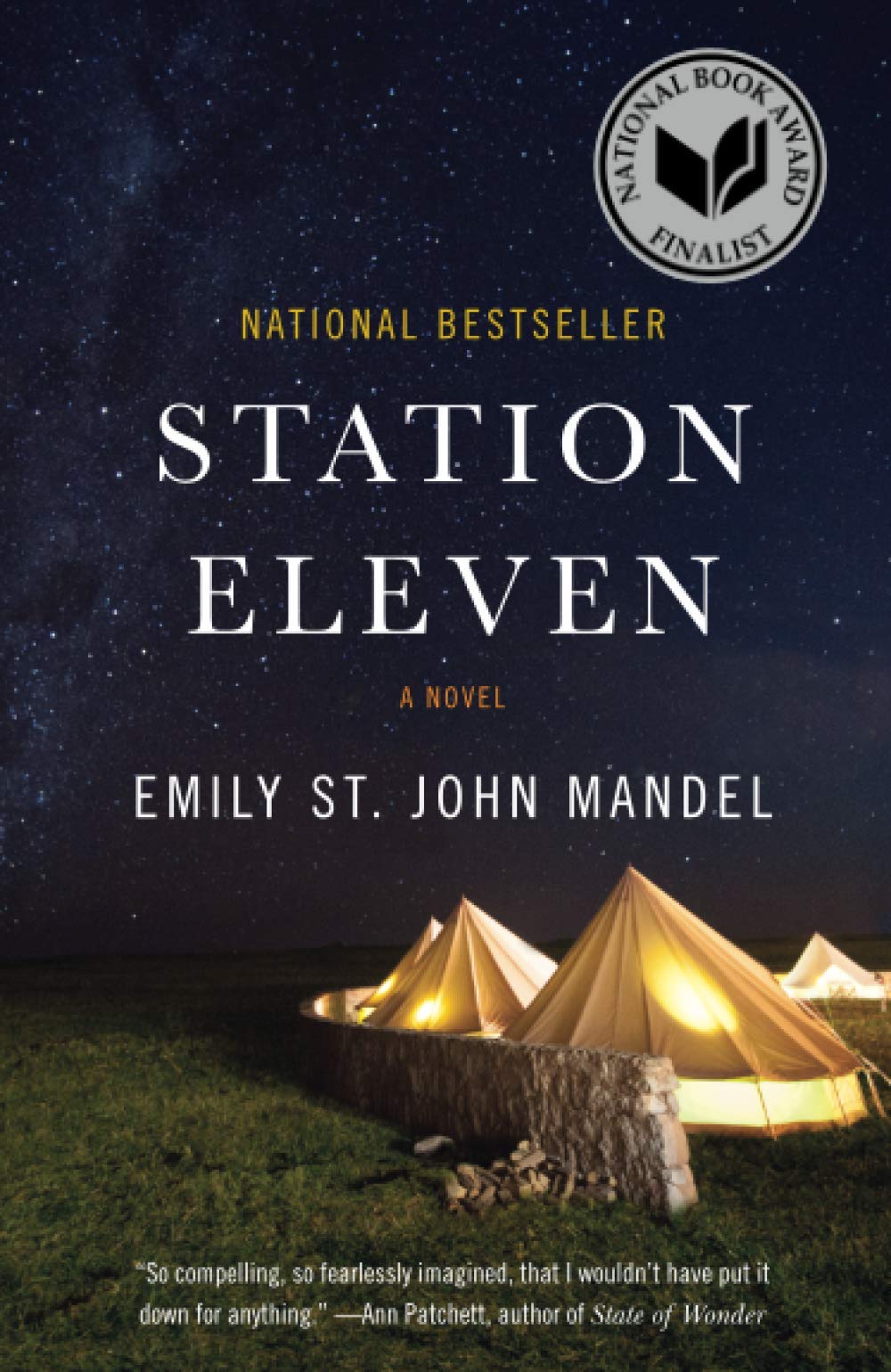
Book Review: Station Eleven by Emily St. John Mandel
Words By Colin Griffith
Editor’s Note: This review was originally written in April 2015. It appeared in F(r)iction #1, available for purchase in the store.
“Because survival is insufficient.”
It’s a fascinating statement, and one that makes more sense when the world has ended. It guides Emily St. John Mandel’s powerful new novel, Station Eleven, in which the end of the world is employed as a backdrop for a more interesting story about humanity. This is where Mandel’s story begins: society has ended, but life goes on. Two decades after a viral pandemic wipes out nearly every human life on the planet, a band of wandering actors and musicians trudge through a world mostly emptied of civilization, the remnants of humanity pooling together like the last drops at the bottom of the genetic soda can. The Traveling Symphony, as they call themselves, continues an endless march around small settlements in what was Michigan, the last touring act in a world otherwise devoid of creative energy.
The diagnosis appears rather hopeless, but Mandel has created a narrative here that defies the conventions of dystopian fiction. Where murder, cannibalism, and a general feeling of darkness rule, Station Eleven tries for sunlight, green grass, and fresh air. The Road is here, but it’s traveled less by human monstrosities than human beings, surviving in a world whose infrastructure may have changed but whose personality seems as alive as ever. Station Eleven is a story that deals more with the beauty of our modern world than the failure of mankind to preserve it.
This is not to say Station Eleven is devoid of conflict, but rather that it appears where one might not expect. Mandel expertly weaves her plot around time and space, between characters and eras, before and after life and death. This is the rare apocalypse in which the pre-collapse world is just as interesting as the devastation itself. Mandel’s characters exist not just as lenses for destruction but also as individuals in and of themselves, sharply-drawn emotional vessels who have the questionable luck of existing at a strange time in history. Arthur Leander is an actor who possesses exquisite control on screen or stage, but lacks it virtually everywhere else. His wife-turned-ex Miranda seems tossed between lives, first a girl lost in a city, then the wife of a celebrity, then an international shipping executive. She writes a comic book series in her spare time, which gives the novel both its title and its central metaphor.
The novel’s sense of conflict, then, comes from the characters who populate the pre- and post-civilization world. Though it is loosely oriented around an ongoing tension between the Traveling Symphony and a mysterious, violent cult, the novel’s structure is restless. Mandel plays plot arcs like the strings of a guitar, shifting seamlessly between modern-day and post-apocalypse characters. The pandemic serves as a film through which Mandel projects a convincing, moving story about people sustaining through catastrophes both personal and universal. Death is pervasive and follows the Traveling Symphony like a distant predator, tattoos on the arms of the players serving as a constant reminder of the violent days that followed the pandemic. Still, that fear is never the looming specter of other stories; this is not McCarthy’s dead planet, nor is it some condescending treatise on the folly of man.
At its core, Station Eleven is a novel about subsistence, about finding ways to live that surpass the demands of simply avoiding extinction. It is a badly needed reprieve from the grim and pervasive brownness of speculative fiction, a work in which the horror of civilization’s end is mitigated by the possibility of renewal. It is a story about pain that never feels bleak or devoid of beauty. Station Eleven works because its characters are not just people of the imagined future but people of now. Sharp and flawed and desperately human, they wander but are not content; they are eager for survival but hope for more.